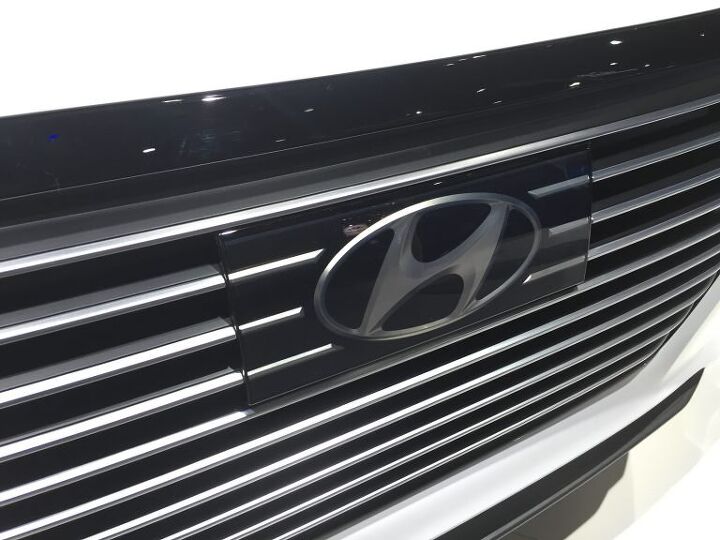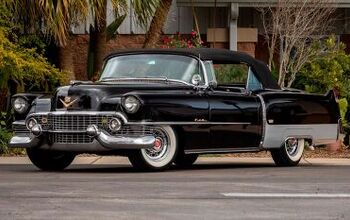Hyundai, Kia, Genesis Brands All Get a New Electric Model: Senior VP

Each brand under the Hyundai Motors umbrella will see an all-new model powered solely by electricity in the next few years, with the lower-rung brands getting them next year.
That’s according to Lee Ki-sang, senior vice president and head of the automaker’s green cars division. While the company is busily crafting an expensive, dedicated electric vehicle platform, those first small SUVs will ride atop existing architecture, he said.
Lee made the product promises during a speech at the Seoul Auto Show, Reuters reports.
The first solely all-electric Hyundai model (unlike the hybrid, plug-in and BEV Ioniq) should launch next year, followed shortly after by a Kia-badged vehicle, Lee said. Both will fall into either the compact or subcompact segment. Genesis plans to launch a plug-in hybrid model in 2019, with a premium all-electric offering scheduled for 2021.
Selling an electric car is hard work (the same goes for hybrids), so Hyundai made sure to wrap that technology with a bodystyle that’s in high demand. With range being a key factor in a customer’s decision to go green, or drill, baby, drill, Lee claims the Hyundai and Kia offerings should top 300 km (186 miles) of driving on a single charge. The compact hatchback Ioniq currently gets 124 miles per charge.
Batteries galore isn’t the only thing worthy of note. Kia has embarked on a fuel-cell vehicle project, following in Hyundai’s footsteps. Still, Lee doesn’t see fuel cells overtaking conventional vehicles or even electrics anytime soon — the executive claims the roll out of refueling infrastructure is simply too slow to make hydrogen-powered driving anything but a long-term plan. In the meantime, he expects to see electric vehicles make up 10 percent of global auto sales by 2025 — a lofty goal that Lee expects Chinese demand will help reach.
[Image: Hyundai

More by Steph Willems
Latest Car Reviews
Read moreLatest Product Reviews
Read moreRecent Comments
- Lorenzo Yes, they can recover from the Ghosn-led corporate types who cheapened vehicles in the worst ways, including quality control. In the early to mid-1990s Nissan had efficient engines, and reliable drivetrains in well-assembled, fairly durable vehicles. They can do it again, but the Japanese government will have to help Nissan extricate itself from the "Alliance". It's too bad Japan didn't have a George Washington to warn about entangling alliances!
- Slavuta Nissan + profitability = cheap crap
- ToolGuy Why would they change the grille?
- Oberkanone Nissan proved it can skillfully put new frosting on an old cake with Frontier and Z. Yet, Nissan dealers are so broken they are not good at selling the Frontier. Z production is so minimal I've yet to see one. Could Nissan boost sales? Sure. I've heard Nissan plans to regain share at the low end of the market. Kicks, Versa and lower priced trims of their mainstream SUV's. I just don't see dealerships being motivated to support this effort. Nissan is just about as exciting and compelling as a CVT.
- ToolGuy Anyone who knows, is this the (preliminary) work of the Ford Skunk Works?


































Comments
Join the conversation
More juice for the masses! Competition is a wonderful thing. Think of all the dirt cheap 3 year old evs that will be available coming off lease. Every progressive school system needs to be planning a parking lot full of ev charging ports for the kids. And of course all of these are cutting petroleum usage on the margin, making those of use who prefer evil carbon power more likely to continue to have 2 buck gas.
I'm amazed at Toyota's and H/K's persistence with fuel cells. Psalm 107:17 "Some became fools through their rebellious ways and suffered affliction because of their iniquities."